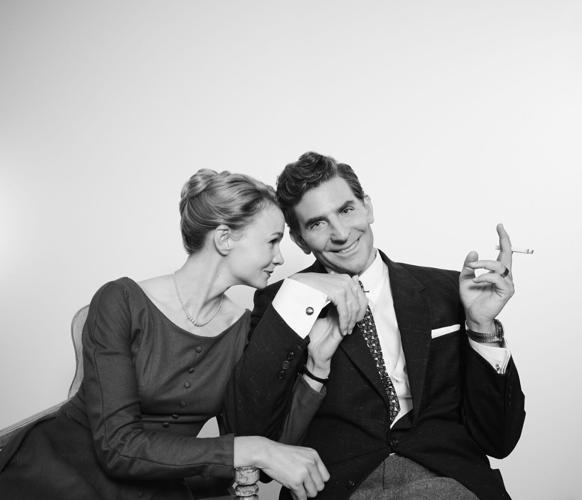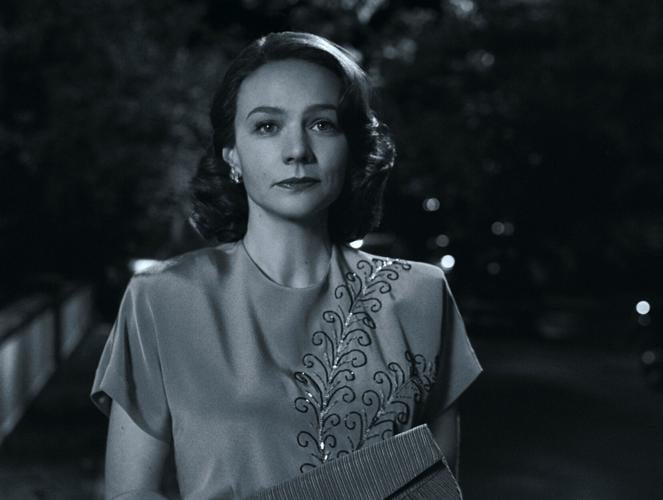Getting the voice right.
That was the starting point for Carey Mulligan when she ventured into “Maestro,” the story of composer Leonard Bernstein and his wife Felicia Montealegre.
“If you can really feel it’s something you don’t even need to think about, then you’ve given yourself a really good place to start,” the British actress explains. “By the time we got to set, that was not something we needed to worry about…and that was such a relief.”
Because Montealegre wasn’t as well-known as her husband, it wasn’t as essential to master. “But I wanted to get that right for myself,” Mulligan says. “Her voice was just so melodic and beautiful. Even before a camera was rolling that felt like the biggest hurdle that we had.”
The film – which was co-written and directed by Bradley Cooper, who plays Bernstein – focused on their relationship, using snippets from key moments to provide a broader picture.
In an interview, Montealegre was asked what was involved with being the wife of a great conductor.
“And she said, ‘A great deal of waiting, a great deal of smoking,’” Mulligan says. “I could just picture her internal world. She found a way to kind of exist in it and keep very still so the hurricane could kind of move around her.”
Montealegre, though, wasn’t a satellite of her husband. In addition to acting, she was something of an early-day influencer.
“She was very opinionated on everything,” Mulligan says. “From acting styles to places to live to places to go on holiday. She was one of those people who had a list for every city of the best of the best.”
The Bernsteins’ children were more than eager to share stories, show artifacts and usher the two stars into their world. “It was kind of incredible to have that kind of access,” Mulligan says. “They really wanted to fill in any blanks. I remember trying to do Zooms with them during COVID and they would (all) be telling these anecdotes at the same and kind of overlapping. It was amazing.”
The offspring also introduced Mulligan to friends in Chile (where their mother was educated) and helped immerse her in the Bernstein/Montealegre world. “The more I learned about her, the more I wanted to learn about her. I just loved her.”
Conversely, Cooper became frustrated with Bernstein. “He was so many things at the same time,” he says. “He never allowed you to label him or put him in a box. He would surprise you. Yet, at the same time, he was ridiculously consistent with who he was. He forced me to think about cinema in a different way, think about story telling in a different way. He forced me to expand myself artistically in order to tell his part of the story.”
That meant a different shooting style for the film. “Everything was so much more live than what I’d been used to,” Mulligan says. “Everything would be in a single take – it being a kind of ‘all or nothing’ experience. There was never anything in this experience where I was holding back anything. That just wasn’t the mode we were in.”
Frequently, the Oscar-nominated actress says, it felt like she wasn’t being filmed. “There was no ‘action’; there was no ‘cut.’ He did everything he could to make it feel like there was just a group of people in this very realistic environment.”
By the time “Maestro” was completed, Mulligan was enamored with Cooper as a director and co-star. "He was just so easy that it was like no one was acting. I wanted to tell my friends who were actors how amazing it was."
"Maestro" is now streaming on Netflix.





